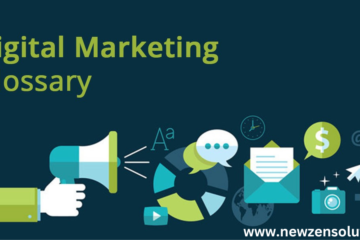In today’s fast-paced business world, digital marketing is often touted as a must-have for growth. However, the truth is, that many businesses jump into digital marketing too soon, without a solid foundation or a clear strategy. If you’re still doing some of the things mentioned in this article, you might want to reconsider your approach before diving into the world of digital marketing. In this guide, we’ll explore why digital marketing might not be your best move just yet, and what you should focus on instead to set yourself up for long-term success.
Primary Keywords: Digital marketing, digital marketing strategy, business growth, marketing mistakes
Supporting Keywords: business strategy, marketing plan, digital marketing tips, SEO, paid ads, online presence
Why Digital Marketing Might Not Be Right For You Yet
Digital marketing can seem like a magical solution for your business’s growth, but there are critical prerequisites that need to be addressed first. Many companies rush into creating online ads, boosting social media posts, and building complex SEO strategies without considering the foundational elements that ensure these efforts will be effective. If you are still in the early stages of your business or if the following issues apply to you, it might be worth holding off on digital marketing until you’re better prepared.
Common Mistakes Businesses Make Before Launching Digital Marketing
Not Defining Clear Business Goals
Before embarking on any marketing journey, especially digital marketing, it’s essential to establish clear, measurable business goals. These goals should be aligned with your long-term vision. Whether it’s increasing sales, expanding your brand’s awareness, or building an email list, knowing your purpose will guide your marketing efforts. Without defined goals, you could end up wasting resources on campaigns that don’t provide value.
Tip: Define SMART (Specific, Measurable, Achievable, Relevant, Time-bound) goals for your business.
Lack of Customer Understanding
Digital marketing is most effective when it’s tailored to a specific audience. Without understanding who your ideal customers are, their behaviors, pain points, and desires, you risk targeting the wrong people or creating irrelevant content. Research and customer insights are the foundation of any good marketing strategy.
Tip: Invest time in creating buyer personas to represent your target audience.
Ignoring the Basics of Branding
Branding is more than just your logo or tagline. It’s the essence of how your business communicates with the world. Before diving into digital marketing, ensure your brand has a consistent voice, visual identity, and message across all platforms. Without this, your marketing efforts will appear disjointed and lack credibility.
Tip: Develop a brand style guide that includes tone of voice, color palette, logo usage, and messaging guidelines.
How to Prepare for a Successful Digital Marketing Strategy
Building a Solid Business Foundation
The foundation of any successful digital marketing strategy is a well-run business. This includes having clear operations, a quality product or service, and customer-centric processes. Without this foundation, your marketing campaigns will not resonate with your target audience.
Key Elements:
- Efficient workflows and operational strategies
- High-quality offerings that solve customer problems
- Outstanding customer service that fosters trust and loyalty
Understanding Your Audience
A great digital marketing strategy starts with knowing your audience inside and out. Market research, customer feedback, and analyzing demographic data are critical steps in building a strategy that resonates.
Tip: Use tools like Google Analytics, surveys, and social media insights to gather data about your customers.
Crafting a Strong Brand Identity
Your brand identity sets the stage for how your digital marketing will unfold. A well-defined brand with a clear purpose, consistent messaging, and recognizable visuals will make your marketing efforts more effective and impactful.
Tip: Ensure that your website, social media profiles, and marketing materials all reflect your brand’s core values and mission.
Optimizing Your Website for Conversion
No matter how great your digital marketing campaigns are, they won’t deliver results if your website isn’t optimized for conversions. Your website should be easy to navigate, mobile-friendly, and designed to guide visitors towards taking the desired action—whether that’s making a purchase, signing up for a newsletter, or booking a consultation.
Tip: Conduct a website audit to identify areas for improvement, focusing on speed, user experience (UX), and mobile optimization.
The Role of SEO in Digital Marketing
Search Engine Optimization (SEO) is the backbone of organic digital marketing. By optimizing your website content to rank higher in search engine results pages (SERPs), you can drive more organic traffic and enhance your visibility online. However, SEO is not a quick fix—it requires ongoing effort and a strategy aligned with your business goals.
Key SEO Components:
- Keyword research and content creation
- On-page SEO: titles, headers, meta descriptions
- Link building and backlink strategy
- User experience (UX) optimization
Tip: Start with foundational SEO before investing heavily in paid ads.
Paid Ads: When and How to Use Them Effectively
Paid advertisements, including Google Ads, Facebook Ads, and Instagram Ads, can drive immediate results when used correctly. However, they are not a replacement for solid business foundations and organic marketing strategies.
When to Use Paid Ads:
- To boost awareness for new product launches
- To retarget visitors who didn’t convert
- To reach specific audience segments that aren’t easily reached organically
Tip: Set clear ROI goals and monitor campaigns closely to avoid overspending.
Leveraging Social Media for Organic Growth
Social media can be a powerful tool for growing your business organically. By sharing valuable content, engaging with followers, and building community, you can create long-term relationships with your audience that will pay off far more than paid advertising.
Best Practices for Organic Social Media:
- Consistently post valuable, shareable content
- Engage with followers and respond to comments
- Use hashtags and trends to increase visibility
Tip: Focus on a few social media platforms and build a strong, engaged following before expanding.
Measuring Success: Key Metrics to Track
To know if your digital marketing efforts are working, you need to measure key performance indicators (KPIs). These metrics will help you understand how well your campaigns are performing and where improvements are needed.
Important Metrics:
- Website traffic (organic and paid)
- Conversion rates
- Cost per click (CPC) and return on ad spend (ROAS)
- Social media engagement (likes, shares, comments)
Tip: Regularly review your analytics to ensure you’re meeting your goals.
Conclusion
Digital marketing is an essential part of growing your business in the digital age, but it’s not something you should jump into blindly. Take the time to build a solid foundation, understand your audience, and create a cohesive brand identity. Once you’ve done this, you’ll be ready to dive into digital marketing with a strategy that works for your business goals.
Call to Action: Are you ready to improve your digital marketing strategy? Evaluate your current approach and ensure that all the necessary foundations are in place.
How New Zen Solutions Can Help Your Business
At New Zen Solutions, we specialize in helping businesses like yours create and optimize digital marketing strategies that align with your unique goals. Whether you need help with SEO, content creation, or paid advertising, our expert team can guide you through every step of the process. Get in touch with us today to start building a marketing strategy that works!




